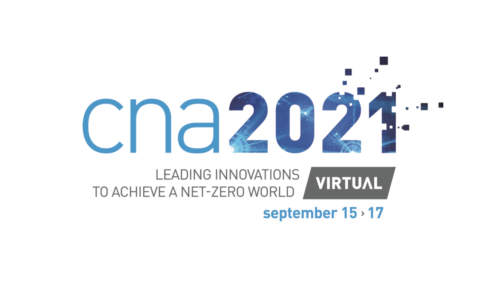
CNSC Hearing Speech: Cameco Corp. Port Hope License Renewals
Today, Heather Kleb, Director of Regulatory Affairs here at the CNA, is speaking at the Licence hearings for Cameco Corporation’s Port Hope Conversion Facility, Fuel Manufacturing Facility and Blind River Refinery, on behalf of the people who work in Canada’s nuclear industry. Here’s why we think the facility licences should be renewed.
—
The Canadian Nuclear Association has some 100 member companies, representing 70,000 people employed in the production and advancement of nuclear medicine, uranium mining and exploration, and fuel processing and electricity generation. This includes the 590 people who operate Cameco’s Port Hope Conversion Facility and Fuel Manufacturing Facility, and the 160 people who operate the Blind River Refinery.
Understandably, we have a strong interest in matters pertaining to the health and safety of our Members and to potential effects on the environment where they live and work. We have therefore reviewed, with interest, Cameco’s applications to renew the Class IB Nuclear Fuel Facility Operating Licenses for the Conversion Facility, Fuel Manufacturing Facility and Refinery, which comprise Cameco’s Fuel Services Division.
In our presentation we would like to make three main points:
- Canada’s nuclear industry needs to maintain its base of highly skilled professionals.
- Our industry is committed to environmental stewardship, both in the communities where we live and work, and globally; and
- We have a proven track record of being among the safest in the world.

PORT HOPE CONVERSION FACILITY Cameco's fuel services division is headquartered in Port Hope, Ontario.
POINT 1:
We would like to start by discussing the community where the Fuel Services Division’s head office, and much of its operations, are based – the town of Port Hope.
Port Hope is a town with a long, rich history. It is home to more than 270 heritage buildings and sites, including former 19th and early 20th century houses, shops and schools. Also included among the heritage buildings and sites are a number of mills, distilleries and factories. Port Hope grew up around these and other industrial facilities, which supported not only its growth, but its economic development.
It is not the focus of the current licence renewals, but we feel it is important to acknowledge these past industrial activities and the legacy that they have left behind. As a result of these activities, Port Hope is also home to low-level radioactive and other industrial wastes, which predate Cameco’s operations there. The wastes are considered to be in a safe and stable condition, but there is an acknowledged need for a solution for their long-term management.
Cameco and a number of our other Members are involved in the development of the required solution. Our industry’s knowledge, experience and technology are being used to clean up the radioactive and other industrial wastes that originated from Eldorado’s facility’s, the Crane Sanitary Company, the coal gasification plant and other past industrial activities.
So, as I indicated in point I., we need to maintain our base of highly skilled professionals – including the Cameco staff that are undertaking this important work.

PORT HOPE CONVERSION FACILITY The Port Hope conversion facility is one of three Western suppliers of UF6, a chemical form of uranium that is the feedstock for uranium enrichment plants that produce fuel for light water reactors.
POINT 2:
With respect to environmental stewardship, the knowledge and skills of Cameco staff were recently tested when, in 2007, subsurface contamination was discovered beneath the UF6 plant. They immediately investigated the extent of the soil and groundwater contamination and completed a site-wide risk assessment. Then, following confirmation that there were no unreasonable risks to employees, the public, or the environment, they installed new liquid management infrastructure and groundwater collection and control systems.
We are confident that Cameco staff will apply this same level of diligence to the resolution of any operational challenge that they face. The commitment to continual improvement is embedded in the ISO 14001 Environmental Management System framework that they work to conform to. ISO 14001 Environmental Management Systems involve a plan-do-check-act cycle of continuous improvement.
As I indicated in point II, we, as an industry are committed to environmental stewardship: protecting the land, air and water, both in the communities in which we live and work, and globally.

Cameco in Port Hope
POINT 3:
We also believe that past performance provides the best indication of future performance when it comes to human health and safety. We are committed to safety and are proud of our safety track record. That being said, we are never complacent. Cameco staff continually work to learn from the experiences of others within the corporation and outside of the organization.
A timely example is the review of lessons learned from the events in Japan. In spite of the operational differences, the Fuel Services Division has carefully evaluated the lessons that can be learned from the Fukushima Daiichi nuclear power plant and developed and submitted an action plan to the CNSC, which outlines further improvements to their operations.
So, not only are Cameco staff committed to the safe, clean and reliable operation of the Fuel Services Division, they are also committed to continually striving to improve the safety performance and processes of the Division. Even though the facilities have been in operation for decades, and the licence renewals will not result in fundamental changes to their operations, Cameco staff are committed to continuous improvement.
As I indicated in point III., Canada has an exemplary nuclear track record with over 50 years of occupational and public health and safety and is a leader in the industry worldwide, but we are never complacent.
In summary
- Cameco has a highly skilled workforce, which should be maintained;
- Cameco has reaffirmed its commitment to take all reasonable precautions to protect the environment; and
- Cameco has expressed a strong commitment to the safe operation of its facilities. Cameco also intends to continually improve the health, safety and environmental performance and processes of its facilities and to ensure the safety of its employees, the community and the environment where they live and work.
In light of these points, the Canadian Nuclear Association is of the opinion that the Class IB Nuclear Fuel Facility Operating Licenses for the Port Hope Conversion Facility, Fuel Manufacturing Facility, and the Blind River Refinery, should be renewed.

